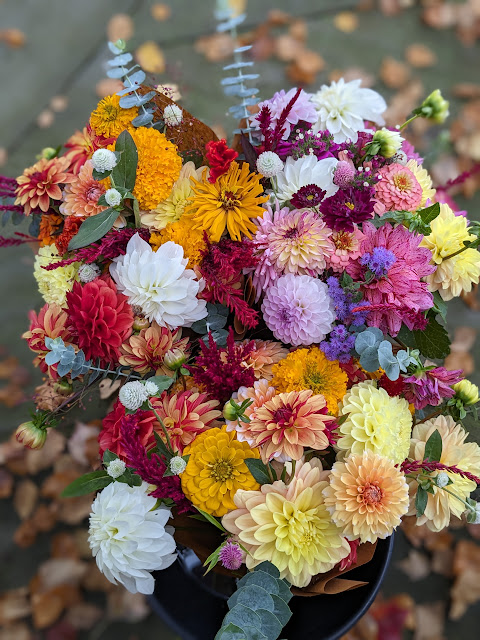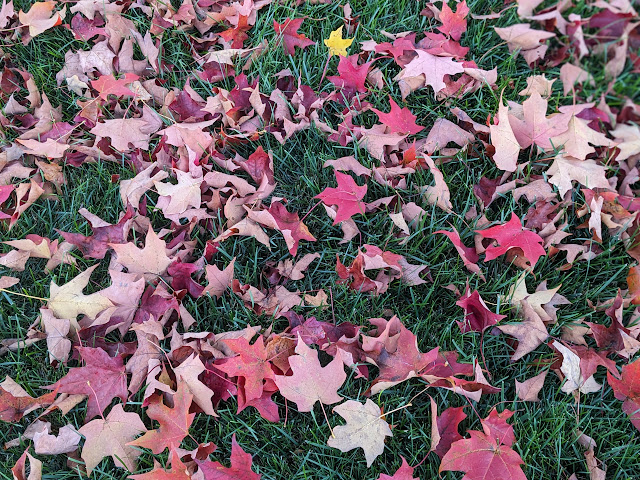
October was quite a month, resulting in much less reading than usual. All of these books are on the shorter side, too. Now that we're halfway into November, I can also say that I've been in comfort-read mood, with light romances and easy mysteries stocking my nightstand. I am here for it!
What do you use to track your reading? I've been a Goodreads user since it started over 15 years ago. But this year, the way that book ratings and reviews are put front and center has been bothering me. You can't avoid the rating, and on each book page you'll typically see a "this was the best book ever" review right along side a 1-star "this book was OK but the writer is a liberal" review. Plus, the whole thing is owned by Amazon and I'd rather not give them all my data. So, I've imported my library into
Storygraph and will stop updating Goodreads at the end of the year. If you're on Storygraph and want to friend me, let me know in the comments. I'm having a great experience with this new site so far.
Code Gray: Death, Life, and Uncertainty in the ER by Farzon A. Nahvi: While Farzon shares a few fascinating cases from the ER, this book is more about the emotions and decision making that goes on behind the scenes. As the title says, there is a lot of gray area where physicians have to go against training or policy in order to provide the best care. It is also great insight into what's going on while you're getting annoyed waiting for your turn!
The Last Devil to Die by Richard Osman: Hands down, the best cozy mystery series out there. I didn't think that the mystery in this book was as strong as in the others, but there is a plot about one of the main characters that totally made me cry. Osman writes with such kindness and sensitivity. He writes in the acknowledgements that he's starting a new series, so there won't be a Thursday Murder Club book next year - so sad! But I will definitely read anything else he writes.
My Favorite Things by Maira Kalman: My favorite type of book:
handwritten! Kalman curated a museum exhibition of her favorite unique objects, and this book is the companion to that. I love how Kalman is doing something different in a sea of sameness.
The River by Peter Heller: Two college friends are on a canoe trip in Canada when they witness a crime - what follows is harrowing experience in the wilderness while they fight to survive. Heller is one of the best when it comes to creating a sense of place. I enjoy reading his books purely to be transported into nature, even if he does write about fishing, a lot.
Like Water for Chocolate by Laura Esquivel: I've owned a copy of this book for over 15 years, so who knows why I was finally moved to pick it up and finally read it. I'm sorry it took me so long! The magical realism oddly makes sense here, and the story seems almost like a fairy tale. Overall it was a fun read. The structure of the book is really clever, with each chapter focusing on a recipe. (Admittedly - there is some cringey stuff in here, like the main character being only 17 - which isn't revealed until halfway through - and a scene that seems very much like rape but is not treated as such. It was published in 1989 and it shows.)
How Can I Help You? by Laura Sims: Librarian Margo is hiding a murderous past. When a new research librarian joins the staff, she begins to suspect that Margo is not who she says she is. While this book was creepy (kind of like Joe Goldberg in "You"), there wasn't too much thriller. It was kind of slow-paced and there wasn't too much to the plot. It was a quick listen but not memorable.
Falling by T.J. Newman: Is everyone reading this book right now? I can see why! It's a fast-paced thriller about a pilot whose family is kidnapped, and he must make a choice: crash the plane or his family is killed. While listening to this book, I could see the movie play out in my head. You know from the beginning that the plane full of people is going to make it (because what kind of disappointment would that be otherwise), but it was fun to see how the good guys make it out on top.
Monsters: A Fan's Dilemma by Claire Dederer: There are so many artists who have since been revealed to have done questionable, horrible, and even criminal things: Picasso, Woody Allen, Roman Polanski, even JK Rowling. So can we separate the art from the artist? Should we? Dederer does not answer this question outright, preferring each reader to come to their own conclusion, but she provides lots to think about. She is a film critic, and that shows in the book through long digressions into film theory that frankly I found boring. But, the book did make me think about how to approach such artists, and I agree with her stance that there is no answer other than for each person to come to their own conclusion about what makes them feel comfortable.


















